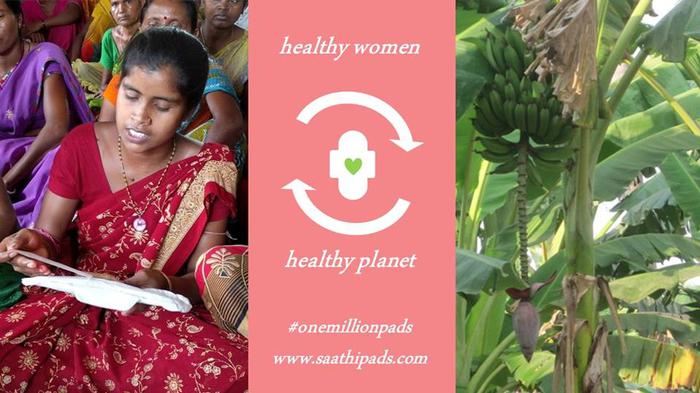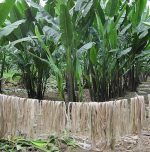Sanitary pads from banana fibre

Now, world is moving towards eco-friendly products as much as possible. In order to make sanitary napkins more eco-friendly, a novel way was found by three MIT graduates. They designed sanitary napkins from waste banana tree fibre.
Kristin Kagestu, Amrita Saigal and Grace Kane were classmates at MIT. They are enthusiastic in engineering as well as development. The design of sanitary pads from banana tree fibre came from their thought of associating health of women with well-being of environment.
As per a survey that was conducted in 2011, only 12 per cent of Indian women are using sanitary napkins due to their cost. Companies use costly machinery to manufacture the pads which make them expensive. As a result, most women are unable to afford them. Hence they are using cheaper materials like cloth which has serious consequences including on their reproductive health.
In order to empower rural women in using sanitary napkins, the three friends decided to establish a social enterprise called Saathi pads from their innovative thought process.
Four years ago, Amrita started working on building a viable solution to sanitary waste disposal. She was awarded the grand prize of $50,000 in the ‘Social Enterprise’ category for her innovative idea of Saathi.
Ideally banana fibre is a waste product for farmers that cultivate banana crops. So, the team can get it for a cheaper price which helps them to make sanitary pads and sell them at an affordable price to rural women. Furthermore, selling banana fibre is fetching extra money to the farmers. Thus, the team is helping rural people.
Saathi is unveiling an onemillionpads initiative in Jharkhand in which it is proposed to distribute 1,000,000 pads to rural women in association with educational NGO Ekal Vidyalaya. Saathi wants to sell their biodegradable sanitary pads throughout the country from 2017.
Saathi is conducting workshops in Ahmedabad to eliminate cultural stigma. These workshops are useful in introducing their product to rural women and educating them about sustainable menstruation management methods.
Image Reference: TheBetterIndia









Leave a Reply